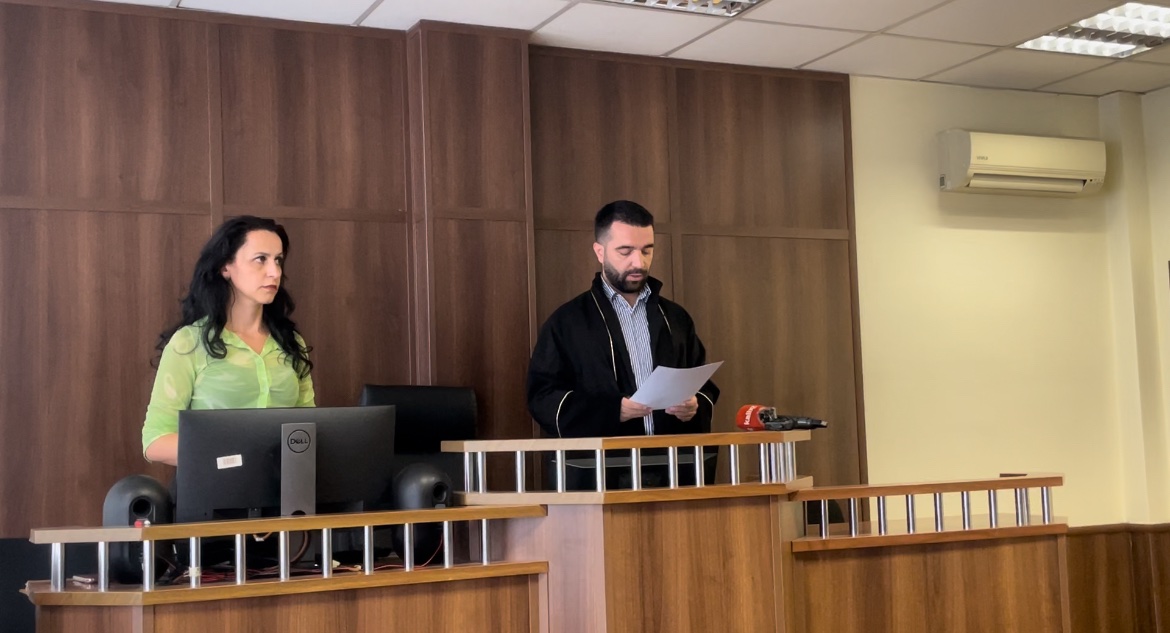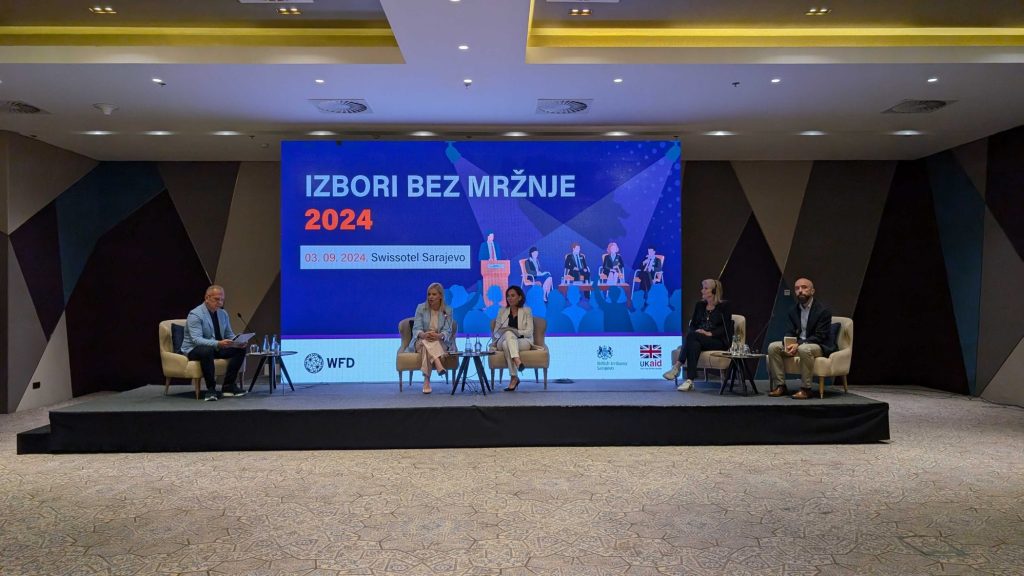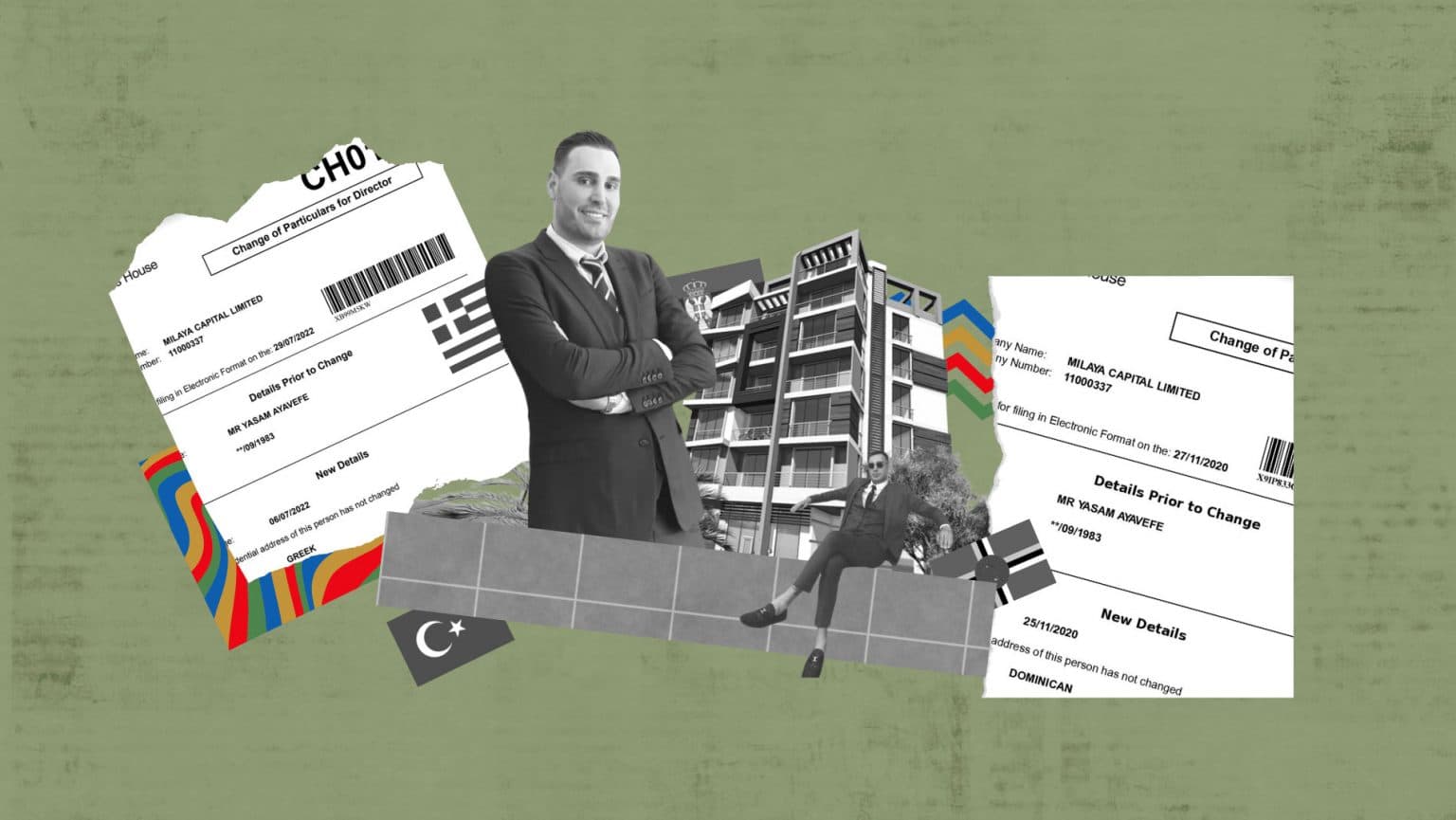It had also been integrated with the EU Open Data Portal, which offers data from EU institutions, agencies and other bodies.
At the request of the government, FBI experts and France’s National Agency for the Security of Information Systems, ANSSI, joined the investigation in September 2022. The FBI submitted a report on the cyberattacks to the Police Administration in January 2023. It has never been made public.
After the attack, it was still possible to register on the open data portal, but not to access the data and any information on it. The last update on the current portal was from May 2022.
The Ministry of Public Administration now says a new open data portal will be established by the end of this year.
“A company has been selected and work is underway to establish it [the portal]. The new portal will be set up by the end of December this year,” the ministry told BIRN.
The ministry told BIRN it issued the tender to select a company to establish the new portal in cooperation with the United Nations Development Programme, UNDP.
It did not explain how the site itself will function.
But UNDP told BIRN that public bodies will publish data in an open format on the portal, which will be under the jurisdiction of the Ministry of Public Administration and will “adhere to all principles of transparency, security, and accessibility”.
The value of the contract is $123,000, and the project is financed by the European Union, the UNDP added.
Open data is a concept in which specific public-sector data is made available for use and reuse by everyone on the Internet, so increasing the transparency of the public administration.
This reduces the number of requests for free access to information and increases the quantity and quality of information published by government bodies.
Montenegro’s open data portal (www.data.gov.me) was established to more efficiently enable the right to free access to information and allow data use for commercial and non-commercial purposes through a joint catalogue.
When launched in 2018, the Ministry of Public Administration said it would represent a central hub for datasets from all institutions, and for information sharing and communication between institutions and system users.
“Publishing data in machine-readable formats is an obligation prescribed by the Law on Free Access to Information, which is aligned with the European Union directive on public sector information,” it said at the time.
Portal never published enough data

Montenegro’s parliament ratified the Council of Europe’s Convention on Access to Official Documents in January 2012, and the legislative framework for the right to access information in Montenegro was established the same year.
To further strengthen transparency and government legitimacy, Montenegro’s legislation had also to be aligned with the new European Union Directive (2019/1024) on open data and re-use of public sector information.
A survey conducted jointly by the Ministry of Public Administration and UNDP in January 2022 showed that 165 datasets from 12 sectors were available on the portal. None was from the environmental protection, sustainable development or tourism sectors.
The survey said human resources and institutional capacities in the public sector needed strengthening to produce open data. It also said public institutions should be obliged by law to submit data to the portal.
Snezana Nikcevic, from 35mm, a Podgorica-based NGO that monitors public services, told BIRN that the open data portal was a good initiative, but it never published enough data.
“Initially, only a little over 100 datasets were published on the portal, and only by a few institutions,” Nikcevic told BIRN.
Muhamed Gjokaj, a member of the Council of the Agency for the Protection of Personal Data and Free Access to Information, AZLP, also said the initial portal was inadequate.
The AZLP decides on appeals regarding requests from individuals and companies for access to open data.
He said that if the state decides to make a wider range of open data available, it must establish special offices across Montenegro that scan the archival material, enter them into the system, and format them into machine-readable formats.
“After that, the data can be offered to the public and the market, most of it publicly, but some for commercial purposes,” he said.
“These initial investments are indeed large and would likely amount to several million euros. But the state would quickly recover these funds both from commercial use of the data and from improving the business environment, reducing the time for various administrative activities, and similar improvements,” Gjokaj added.
According to the 2023 Open Data Report for Europe, the Montenegrin government’s action plan included obligations to improve open data at national and local levels, including adopting mandatory annual open data plans and calendars for public institutions.
“However, stakeholders faced difficulties fulfilling open data obligations due to the need to recover data and restore IT infrastructure following the cyberattack [in 2022],” the report said.
“In the next action plan, the Ministry of Public Administration and the Open Data Management Council should focus on publishing key categories of data that Montenegro has been missing, such as air quality, administrative boundaries, election results and land ownership,” it advised.
Pavle Cupic, a coordinator at the Podgorica-based NGO Civic Alliance, emphasizes that greater transparency in public data often leads to greater accountability of public institutions.
“For example, the availability of budget data can reduce corruption and allow citizens and civil society organisations to better monitor public spending,” he said. “Digitalising services reduces bureaucratic barriers and speeds up processes for citizens and businesses,” Cupic told BIRN.
Public sector staff unaware of open data

Montenegro’s Public Administration Reform Strategy for 2022-2026, which was released in February 2022, noted that more than 84 per cent of public administration employees were not familiar even with the concept of open data.
It also said that 83 per cent of public sector employees had never heard of the term “machine-readable data”, and 93.5 per cent were unaware that they can use open data in their work.
Cupic believes Montenegro may not yet be at a level where citizens and civil society organisations can fully benefit from digitalization and open data.
“Not even all institutions understand the importance of this issue, nor do they contribute enough to … fully implement the digitalization process and realize the potential significance of open data,” Cupic said.
The Ministry of Public Administration and the UNDP survey from January 2022 also showed that the open data portal had not been sufficiently promoted to the public.
It said data should be better systematized and urged public institutions to designate contact person to handle open data issues.
Gjokaj, from the AZLP, maintains that a better open data system would attract foreign investment and cut corruption.
“Fully implementing open data reduces the need to visit different counters, and services required by citizens and businesses are expedited … it leads also to a significant reduction in corruption,” Gjokaj said. “The more data available, the less room there is for corruption.”
Nikcevic, of 35mm, suggests that the new open data portal should be more comprehensive but also involve more intensive work with people from the public administration to ensure a functional and regularly updated database.
“The open data that institutions are supposed to publish is especially important for journalists, civil society organisations and social enterprises because it enables the monitoring and highlighting of both negative and positive practices in public administration. It also helps to propose certain solutions and predict various trends,” she said.
“Data, especially today, when almost everything we do is data, is crucial for making informed decisions; at the end of the day, that’s the point of democratising processes – to have a society where individuals make informed decisions,” she concluded.




 Supporters of the pro-Kurdish Peoples’ Democratic Party at a rally in Diyarbakir, Turkey, March 2023. Photo: EPA-EFE/SEDAT SUNA
Supporters of the pro-Kurdish Peoples’ Democratic Party at a rally in Diyarbakir, Turkey, March 2023. Photo: EPA-EFE/SEDAT SUNA















